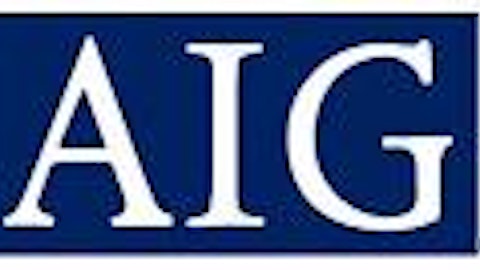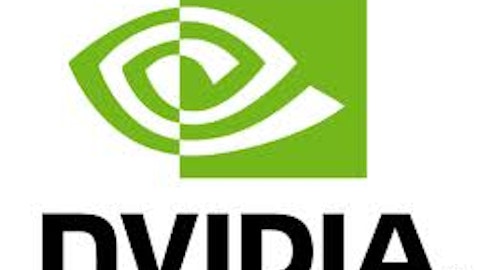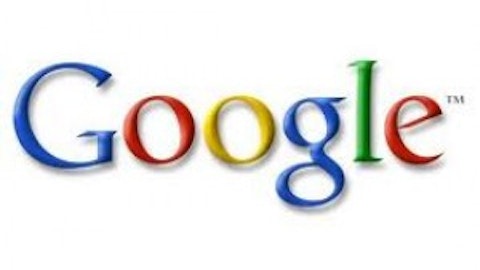
However, all do well when screened against the concept of Joel Greenblatt’s Magic Formula. The idea of Magic Formula Investing is to buy stocks that are relatively cheap with high earning yields (EBIT/Enterprise Value) and returns on capital (EBIT/(net fixed assets + working capital).
Earnings Multiples and Return Metrics Indicate Apple Inc. (NASDAQ:AAPL) is Most Attractive
In the following chart, a look at each stock’s earnings for FY13 and FY14 shows high single digit (Oracle) to mid-teens earnings (Apple Inc. (NASDAQ:AAPL)) growth for these stocks. While Apple has the highest ROA, ROE and earnings growth, it trades at a discounted multiple of 10.3x and 9x FY13 and FY14 consensus earnings, respectively, relatively in line with Microsoft but below Oracle. This could indicate it’s a relative value. On the other hand it may have lower quality earnings, belief that consensus will be revised downward and/or earnings growth for Apple Inc. (NASDAQ:AAPL will retreat following FY14.
Magic Formula Points to Apple
The evidence also points to Apple as the best value based on Greenblatt’s Magic Formula. Both Apple and Microsoft have a similar TTM earning yield, 14.1% and 14.4%, respectively. That said, Apple has by far the largest return on capital, largely due to their negative working capital. Apple is the only manufacturer of hardware, but they heavily outsource this. Due to their size and position in the market, their payable terms with suppliers are very attractive and account for their negative working capital position. Also, similar to the P/E multiples, Oracle trades at a premium to Apple and Microsoft.
Oracle Corporation (NASDAQ:ORCL)
The case to own Oracle includes a few keys. First, management has focused on shifting hardware sales to its higher margin products. Margin improvement and a shift to growth in hardware in FY13 would be positive for the stock.
In their database and applications business, Oracle can gain share from International Business Machines Corp. (NYSE:IBM) and SAP AG (ADR) (NYSE:SAP) driving additional growth in this business. Oracle is also positioned to benefit from increasing use of the Cloud with over 100 enterprise applications and its use of a subscription-based pricing.
All of this can drive further improvements in margins and earnings growth. While its valuation indicates it is more expensive than Microsoft and Apple, it is still attractive for a hardware and software firm with an outlook for steady earnings growth. Oracle has fewer concerns with future earnings than Microsoft or Apple, also contributing to its premium valuation.
Microsoft Corporation (NASDAQ:MSFT)
While the PC market is soft, demand for Microsoft’s enterprise products remains stable. Microsoft has lacked significant exposure to faster growing markets, like tablets and smartphones, but it is trying to change this. While initial Surface (tablet) and Windows 8 tablet sales are below expectations, it is still early and Microsoft can steadily gain penetration into this market.
Also, the Windows phone will likely contend with the Research In Motion Ltd (NASDAQ:BBRY) BlackBerry 10 for third place in smartphone market. Interest is increasing for their Cloud products as well. If Microsoft can gain traction into one of these higher growth markets, upward earnings revisions by the Street are likely to drive the shares higher.
Similar to Oracle and Apple, it is attractive based on valuation when taking into account their stable earnings outlook in combination with the potential for increased exposure to higher growth markets.
Apple Inc. (NASDAQ:AAPL)
Apple’s stock has sold off behind concerns that earnings growth and margins will retreat from the high levels experienced over the past decade. While Apple does not have a clear market-changing product to drive growth on its bench like the iPad, iPhone or iPod, it still has a good outlook.
Apple’s earnings growth will likely retreat to the low double digit levels, but that is still steady growth. In addition, Apple has $42 cash/share and will continue to generate significant cash flow. Its valuation is attractive when taking into account its earnings growth, albeit at a lower level than years past, and ability to generate cash flow.
Conclusion
All three of these stocks are attractive for one reason or another. Oracle, despite its higher valuation, has a steady earnings outlook and earnings growth is not dependent on pushing into new markets like Microsoft. Apple has the best return metrics of these stocks but news flow and momentum have been less than favorable. Microsoft has stable earnings and has the chance to improve its earnings power if it has success entering new markets.
The article Apple on Joel Greenblatt’s ‘Magic Formula’ Screen originally appeared on Fool.com and is written by Mike Thiessen.
Copyright © 1995 – 2013 The Motley Fool, LLC. All rights reserved. The Motley Fool has a disclosure policy.







